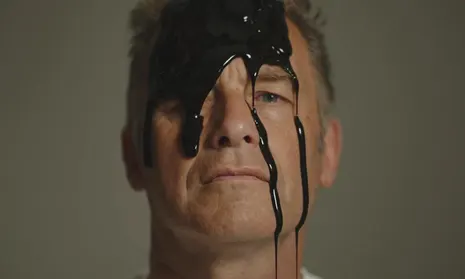Can Chris Packham, or me, or you save the planet?

I’ve always felt sorry for the Extinction Rebellion/Just Stop Oil protesters, for two reasons: firstly their evident frustration at the lack of real progress at tackling climate change and, secondly, the futility of the actions they take to try to do something about it. The nadir of course was the two activists who decided to disrupt the journey of an electric train in London taking people to work, effectively punishing people for doing exactly what we’d like them to do.
I had similar feelings about the recent Chris Packham documentary ‘Is it time to break the Law?’ where the prominent naturalist frets over the dilemma of whether he should break the law in order to bring attention to the cause. Packham has a massive TV audience and is increasingly injecting a sliver of much needed reality into the nature porn “Isn’t it lovely? Well, it won’t be if we keep polluting the natural world.” Would he really have more influence if he was being bundled into the back of a Police van?
A big frustration of mine is climate activists who tell people that their own actions don’t matter while the ‘neoliberal capitalist machine’ rolls on. In fact, when I commented that the Guardian’s list of 10 things you could do to save the world only contained one personal change item, I got a massive backlash from ‘green’ Twitter.
I think the idea that we are powerless individuals is a dangerous lie for the following reasons:
First: we won’t get a sustainable global society if 8bn people don’t accept the low impact way of doing things. While city authorities can build a cycle network, we still need individuals to embrace the bike as a regular form of transport for it to do any good (fortunately experience suggests ‘if you build it they will come’ in this instance).
Secondly, the consumer is the engine of the global economy, not a shadowy cabal of industrialists. Every penny we spend is a choice whether to buy a high carbon something or a lower carbon something, whether that’s a burger, a vehicle, a holiday or a house. The signal each of us sends to the market might be tiny, but it is a signal. Conversely, if you’re not buying green, you’re telling the market that business as usual is OK.
Thirdly, we are herd animals and look to each other for social acceptance. When my city first introduced kerbside recycling, we were one of a handful of houses in our street to put out our recycling. Over the following months, the number of recycling boxes appearing each week gradually rose until everybody was putting one out. But somebody had to move first. Taking my son to his football practice on a cargobike has opened many conversations and sold at least one more cargobike!
Fourthly, we all have influence in different ways: home, extended family, work, other institutions. Changing those networks is easier if you have embraced the change yourself – asking where you can charge your electric car or securely store your bike at work/college/the supermarket is a powerful catalyst for change which not only helps you behave sustainably but lots of other people too.
Lastly, we need to get even some environmentalists out of their comfort zone. I’ve seen people who work in the Sustainability field complain about low traffic neighbourhoods and clean air zones, confecting convoluted reasons why these changes shouldn’t inconvenience them. Embracing personal change helps keep you away from such hypocrisy.
So yes, get angry if politicians and others fail to act, but be the change you want to see in the world, as Gandhi (kind of*) put it. Chris Packham has a wonderfully influential platform and I’d urge him to keep using it for the good. If he disappeared from our screens due to a criminal record, the natural world would lose a powerful ally.
*as with many famous quotes, this one has been somewhat refined in the decades since it was said!

